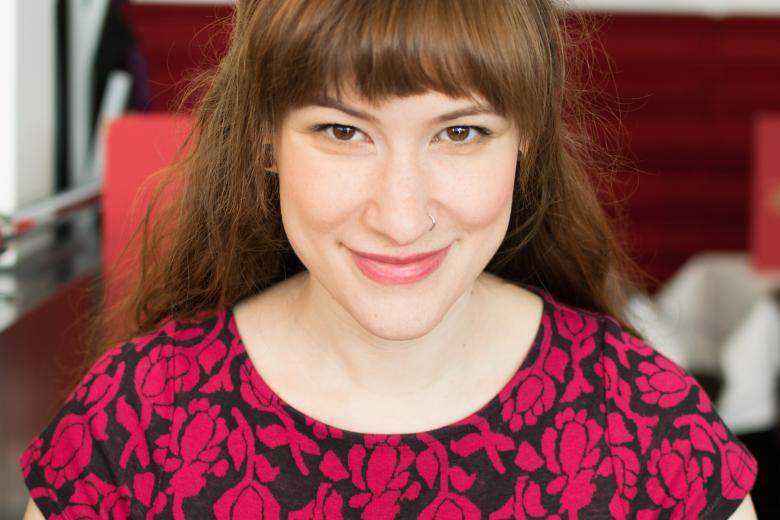Centre of Expertise for Inclusive Labour Organisation (Expertisecentrum Inclusieve Arbeidsorganisatie)
On 7 December 2016 the UWV and Expertisecentrum Inclusieve Arbeidsorganisatie (CIAO) signed a cooperation agreement for the duration of 4 years. The CIAO is housed at Universiteitssingel 40, Maastricht University.
CIAO is a cooperation between UWV and the section Work and Organisational Psychology of the Faculty of Psychology and Neuroscience (FPN). CIAO wants to acquire and distribute knowledge and expertise on the topic of Inclusive Labour Organisation. The centre was initiated in response to the “Participatiewet” that states that organisations must create jobs for people with a “distance to the labour market”. These are people with diverse disabilities, both physical and mental, who cannot easily find work on the current labour market. The “Participatiewet” dictates that in the next 10 years 125.000 jobs need to be created for this target group.
This, of course, is easier said than done. The question that needs to be answered is: why can they not find work? The answer is simple: current jobs are not suitable to them. In order to create suitable jobs, the work needs to be adjusted. By developing simpler positions, organisations can actively search for employees within the target group. This reverses the posed problem: it used to be that consultants would visit companies to see if they might have room for someone with a distance to the labour market.
The CIAO has developed a methodology that analyses workplaces and processes, and can create “simple” jobs within the organisations by restructuring these processes. This means organisations will have a steady supply of jobs for people from the target group. People with a distance to the labour market can then apply to these functions. This allows the opportunity for companies to make a selection of different candidates, and the candidates have some freedom to choose which company they want to work for.
Social context
The baby boom generation is retiring. This results in a shortage on the labour market. Several sectors are already noticing the changes, for instance: health care and education. There is also a large group of people that have been side-lined by the labour market for years. These two societal problems are targeted by the CIAO.
There is a high threshold for returning to the labour market, due to technological and societal developments. Many companies economise by downsizing and restructuring their workforce. This results in less people having to do the same amount of work, increasing the pressure on the individual. Because modern companies tend to work in teams, not only professional know-how is mandatory, but also well-developed social skills. These factors all contribute to an increasingly complex way of working.
How does the CIAO operate?
CIAO advises organisations and trains individuals in their methodology. The methodology teaches companies how to make work “simpler” so that it can be performed by people with a distance to the labour market. A hospital is an example of one of these organisations. CIAO has analysed all task performed at a hospital. Nursing is a complex profession with many tasks: administering medicine, making beds, and many more. A cleaning crew is also active twice a day, and a foodservice with nutrition assistants. These are all separate processes, CIAO has streamlined this way of working by creating the position of Nursing Assistant. This means that nursing wards now employ people from the target group, trained in cleaning, as Nursing Assistant. They are present all day and are prepared and ready to clean. They have also been trained in food distribution and can help the nursing staff with heavy lifting such as making beds. The addition of the Nursing Assistant employs people from the target group and leaves the nurses free to give better care to patients.
This methodology has been used in many organisations, and will also be implemented at for example Maastricht University.
The cooperation with UWV means that the CIAO will be financed for the next 4 years. Each year the Ministry of Social Affairs and Employment will make 425.000 euros available via UWV for further research and implementation. With these finances, the CIAO can keep developing methodologies and hand more tools to organisations for increasing the employability of people with a distance to the labour market. An example of this is a tool that calculates the capacity for work in unemployed people.
CIAO also aims to reach more partnerships with organisation with similar goals. For example: PHRENOS, a knowledge institute in Mental Health Care, this institute focusses mainly on the guidance of individuals with Severe Mental Illnesses (SMI). In this respect CIAO and PHRENOS can learn a lot from each other, exchange knowledge and reach even better results.
Would you like to learn more about the Expertisecentrum Inclusieve Arbeidsorganisatie, visit the website: http://www.inclusievearbeidsorganisatie.org/
With special thanks to Prof. dr. FRH Zijlstra, Scientific Director
Also read
-
Dr. Benedikt Poser and his team reel in the NWO Investment Subsidy Medium grant (MaGW)
Last week Dr. Benedikt Poser of the Department of Cognitive Neuroscience (CN) at the Faculty of Psychology and Neuroscience (FPN) received word from the NWO (Dutch Organisation for Scientific Research) that his team received the NWO Investment Subsidy Medium grant (MaGW) from the NWO’s division of...
-
Dr. Jessica Alleva awarded for her work on improving body image
In January Dr. Jessica Alleva, from the Department of Clinical Psychological Science at the Faculty of Psychology and Neuroscience, was honoured twice for her work on improving body image. She received the 2016 Seymour Fisher Outstanding Body Image Dissertation Award and the Distinguished Women...